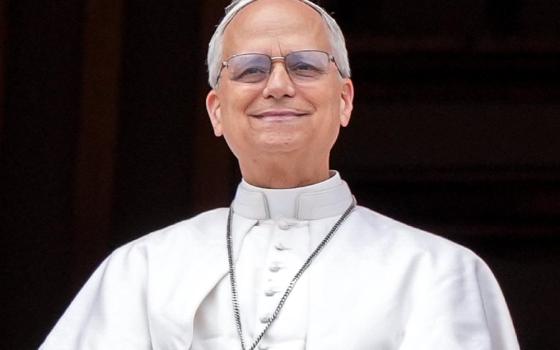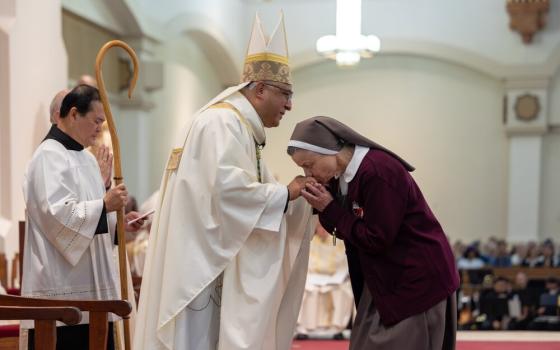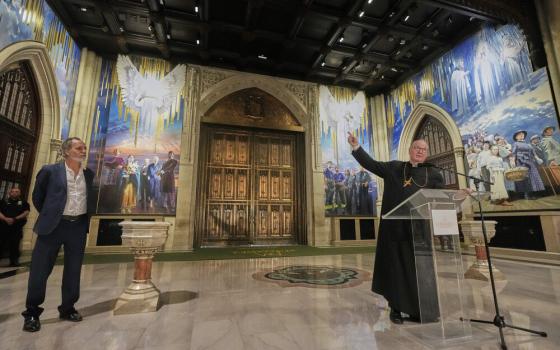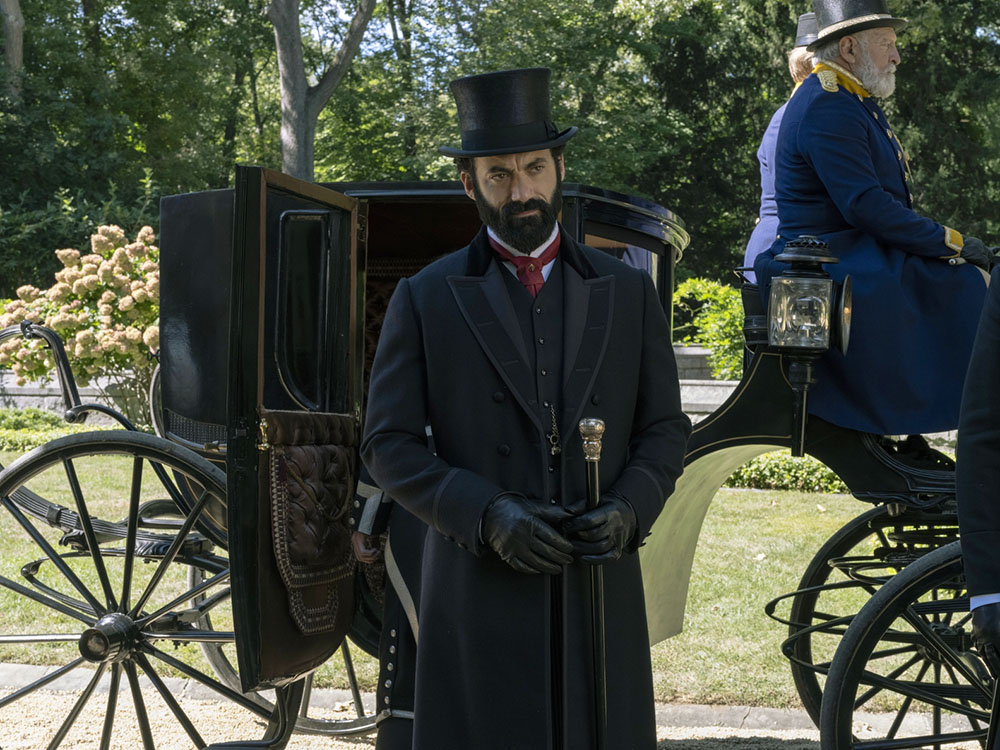
Morgan Spector plays George Russell, an amalgam of Cornelius Vanderbilt and his grandson William in HBO's "The Gilded Age." (HBO/Karolina Wojtasik)
"The Gilded Age," HBO's costume drama about the lives of the wealthy and their servants in 1880s New York City, is popcorn viewing of the highest caliber. The show boasts some of Broadway and Hollywood's finest actresses — Audra McDonald, Carrie Coon, Denée Benton, Donna Murphy, Cynthia Nixon, Kelli O'Hara, Phylicia Rashad and Christine Baranski among them — devouring every scene in enormous, ravishing bites.
But now that the season is over and the champagne fizz has faded, I find myself wondering about this community in which I've taken such obsessive delight.
The real-life society (and, in some cases, people) on which the show is based was arguably despicable, populated by robber barons willing to break every tenet of civil society to seize power and by aristocratic elites raised on entitlement while those around them struggle. Their lives mirror some of the very worst actors in our own society today. How is it we are invited to delight in them?
Written by "Downton Abbey" creator Julian Fellowes, "The Gilded Age" largely follows the upstairs/downstairs format of its predecessor, but with the addition of a third group: the African-American community of Brooklyn, who bring entirely different (and increasingly fascinating) stories to the mix. Both shows take place during times of great social change: "Downton Abbey" in England in World War I era, during which the power of the landed aristocracy diminished, and "The Gilded Age" in late 19th-century New York, when new money began to push its way into patrician New York society. Both shows applaud the social progress that results, particularly the broadening of possibilities available to women and laborers.
Advertisement
But where "Downton Abbey" held back nothing in its critique of the aristocracy, Fellowes shows a strange reluctance to fully examine the "The Gilded Age" elite. The Astor money, which allows Mrs. Caroline Astor to hold such an arbitrary and iron grip over society, came largely from the family's real estate holdings — including wide swathes of overcrowded, poorly kept tenement buildings.
"The Astors were slumlords, no doubt about it," Anderson Cooper told CBS News in a discussion of his book on the family. Patriarch John Jacob Astor's motto was "Buy and hold, let others improve." A ruthless businessman, he was known for ripping off those who worked for him. His son, Mrs. Astor's father-in-law, was known as "the Landlord of New York."
Meanwhile, the Vanderbilts — upon whom the Russells are based — were rapacious railroad owners who tried to monopolize the industry while showing little interest in the wages and living conditions of their workers or the impact of their work on the natural world, the law, or the democratic process.
The term "robber baron" came out of a 1859 editorial by The New York Times about Cornelius Vanderbilt. It described him as akin to "those old German barons who, from their eyries along the Rhine, swooped down upon the commerce of the noble river, and wrung tribute from every passenger that floated by."
On "The Gilded Age," George Russell, an amalgam of Cornelius Vanderbilt and his grandson William, is played with brooding sincerity by Morgan Spector. But while we see Cornelius' relish for taking no prisoners when it comes to his competitors or employees, Fellowes seems to have a strange protectiveness for the character, giving George Russell an anachronistic empathy. While the historicalVanderbilt cut employee wages during the 19th century's worst depression, leading to a massive, violent national strike, Russell accepts union demands for an eight-hour workday, preventing the violence that actually occurred.
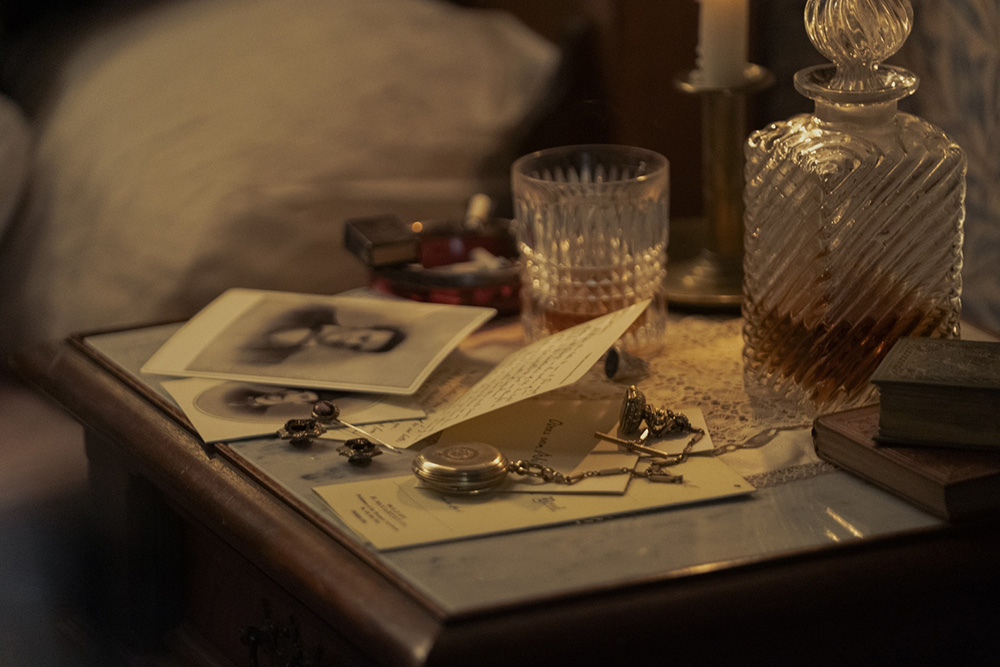
Written by "Downton Abbey" creator Julian Fellowes, HBO's "The Gilded Age" is a costume drama about the lives of the wealthy and their servants in 1880s New York City. But unlike its predecessor, the new show is reluctant to critically examine the elite class. (HBO/Karolina Wojtasik)
Fellowes' sympathy doesn't end there. He makes Russell's wife, Bertha (Coon), so villainous that it becomes impossible to see George or their children as anything but victims in the path of her monomaniacal cyclone. Mrs. Russell is a new money Lady Macbeth, possessed by a desire to ascend so voracious that she's willing to sell her daughter off to a down-on-his-luck English duke to help make it happen.
Seemingly captivated by the costumes and society politics, Fellowes' work is uninterested in examining the foundations that enable this society to exist. "The Gilded Age" may be a wonderfully performed, fancy soap opera offering an hour's escape from a country growing more horrendous by the day. The problem is, we're being invited to sympathize with people who bear uncomfortable and unacknowledged commonalities with those currently running our country into the ground: tycoons and their families who steal from everyone, destroy their opponents, humiliate the powerless and have no respect for law, truth, democracy or the planet.
Forget the show; we're living in the world where the robber barons have won.
In his farewell address, President Joe Biden warned that "an oligarchy is taking shape in America of extreme wealth, power and influence that literally threatens our entire democracy, our basic rights and freedom, and a fair shot for everyone to get ahead." The last six months have proven him right. What does it mean that in the midst of it, we're being invited to admire their forebears?

